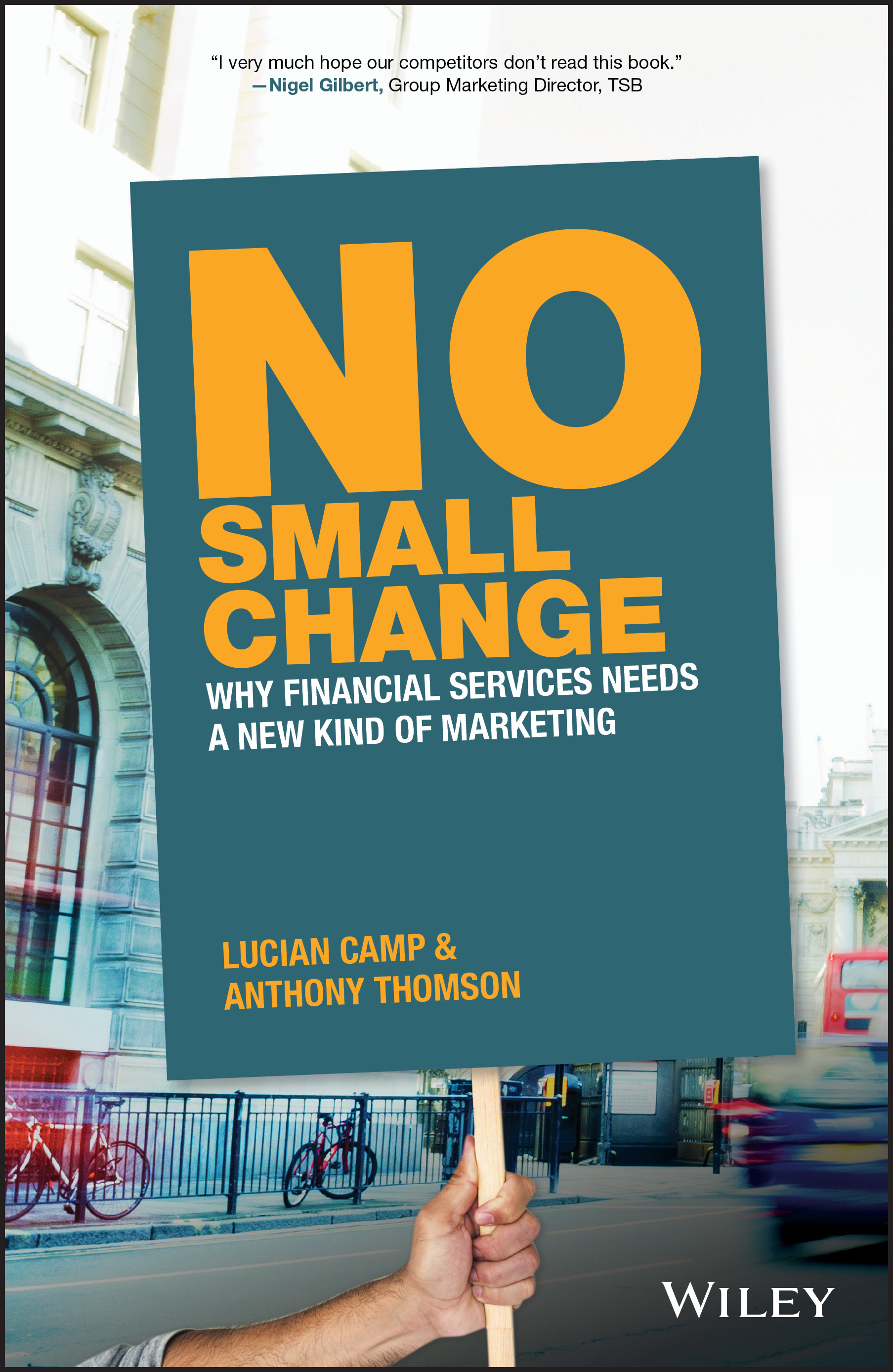An increasingly digital, fintech-driven industry needs not more marketing, but better marketing, to ensure it’s successfully identifying consumers’ real needs and finding powerful and successful ways to engage with them. Post-GDPR, Lucian Camp points to the current crisis of data privacy concerns and trust issues and says marketers should now learn to manage consumer distrust, rather than to try to tackle the impossible task of restoring it.
In the world of financial services, more has been written in recent years on the subject of trust than on almost any other topic. Googling the phrase ‘trust financial services’ gives 380 million results; ‘trust banks’ 170 million.
Perhaps inevitably, this tsunami of comment and opinion has resulted in some extremely clichéd and formulaic thinking on the subject. We all agree that there’s a ‘crisis of trust’ in financial services. And everyone says the priority for financial services firms is to ‘restore’ it.
Very often, when thinking becomes too clichéd and formulaic, that’s the right time to challenge it. And I believe this is one of those times.
It seems to me that too many people in financial services haven’t noticed that this crisis of trust thing isn’t particularly focused on them and their world and, what’s more, isn’t a particularly recent phenomenon. Trust generally, in almost everything and everyone, has been in full-scale retreat for at least a century – so that in most if not all societies, most if not all of the institutions that once inspired widespread trust are now viewed with still-increasing scepticism. Whether it’s politicians, the media, religious leaders, business people, doctors, lawyers – the detail and the pecking order may vary from one society to another, but the general downward trend is clear.
For a contrarian like me, there are two key points about this mega-trend
First, on the whole, I’d argue without hesitation that it’s a good thing. In fact, a very good thing – quite possibly one of the best things that has ever happened. Scepticism – unwillingness to give trust – is healthy, sensible and all too often necessary. Returning to my focus on financial services, the simple fact is that, over the years, far too many institutions have betrayed their customers’ trust far too often. I wish people had trusted their banks, insurance companies and other service providers less, not more.
And second, we’ve now reached a point where we can confidently say that trust isn’t coming back. All sorts of factors combine to make this certain, but three stand out. The first and most obvious is that trust-harming things just keep on happening. The second is that in the world of mass media and perhaps even more so in the world of social media, stories that damage trust become far too famous too quickly – they simply can’t be ignored. And third, social media in particular makes it too easy for consumers to act on their distrust. It’s the work of a moment to check what hundreds or often thousands of online reviewers have to say about whatever it is.
But while ‘restoring trust’ is a fantasy, there’s another objective which is achievable and important, and which I’d argue offers a way forward for everyone dealing with customers in financial services, whether in marketing or in the delivery of the services themselves. That objective is managing distrust, and I think that’s the approach that makes sense at the point we’ve now reached.
Managing consumer distrust
Management of consumer distrust means recognising that a large proportion of your customers or prospects or whoever, approach whatever it is you want to say or do in a state of profound suspicion. They’re on a hair trigger, waiting for a shred of evidence to confirm that their suspicions are justified. Like a volatile and unexploded bomb, almost anything can set them off. Behaviours that we might think are completely innocuous look deeply sinister to them. Weasel words are a good example. If customers “may” not get back the amount they invested, many will assume that means “will”.
Spooky stuff with data freaks out a lot of people. “How did they know that about me?” or “Where did they get my details from?” are questions people are asking all the time. Reassurances about data security count for little in a world of apparently unlimited retargeting. And in the UK, I notice that a GDPR backlash has now begun, with people increasingly wondering why all that fuss about permissions seems to have made no difference at all to the number of emails in their inbox.
The thing is that if, at any moment in any customer journey, anything happens to activate their suspicions – to turn the doubt they started with into the certainty that something’s not right here – then they’re gone, and they won’t come back. I notice this particularly in online application processes. One badly-worded question and the drop-out rate spikes massively, and that’s game over. A bit like tightrope walkers, consumers are fine so long as they keep their balance. If they lose it, they fall off.
 It seems to me that recognising this reality, and keeping it in mind at all times, is the secret of success when it comes to dealing with consumers in a distrustful age. Whatever the journey they’re making, the key aim is to avoid any kind of event that could make them fall off that tightrope, so they make it safely to the other side.
It seems to me that recognising this reality, and keeping it in mind at all times, is the secret of success when it comes to dealing with consumers in a distrustful age. Whatever the journey they’re making, the key aim is to avoid any kind of event that could make them fall off that tightrope, so they make it safely to the other side.
And at the same time, although I certainly wouldn’t claim any miracles, it may just be that the degree of trust they feel – at least towards your firm, if not towards the industry as a whole – rises just ever so slightly.
Have an opinion on this article? Please join in the discussion: the GMA is a community of data driven marketers and YOUR opinion counts.


 It seems to me that recognising this reality, and keeping it in mind at all times, is the secret of success when it comes to dealing with consumers in a
It seems to me that recognising this reality, and keeping it in mind at all times, is the secret of success when it comes to dealing with consumers in a 


Leave your thoughts